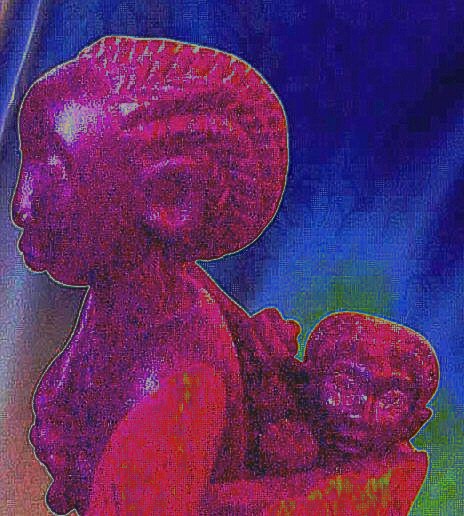|
|
2nd Sunday Our vocation into being
|
All three of the readings today have to do with what we usually call vocation. Vocation simply means to call somebody. It's one of the really unfortunate things of our tradition that we have impoverished the notion of vocation. We have Vocation Sundays. We have Vocation Drives. We have prayers for vocations. Everybody knows what they're talking about. We need more priests and nuns and brothers. Certainly, when I was a kid and thinking about God, coming off a spate of atheism for a couple of years, and thinking "How can I get to God?" That impoverished image of vocation - which was church wide - was mine too. I said, well, there's only one choice. You go to the seminary. Or, you go to be a monk.
This image is misleading in any number of ways. First of all, by it's terrible narrowing of the notion that God is interested in me, would bother to call me. Only to say to me is... you ought to go to the convent, you belong in the seminary. As if that's the ambit of God's concern and interest. That's rubbish. As I have been thinking about these texts I confess to having all kinds of pangs. Because it's only fairly late in life that this has been borne in on me.... this sense of impoverishment. And there is the consequent need to restore the real meaning of vocation.
All vocation is indicated in the very fact that we exist. We are called by God into existence. Our existence is divinely intended. I put it to you, that that is the only real meaning of vocation and that everything else is simply a further ramification of that. But, if we don't have that primal understanding, we can't go anyplace. But, even in the seminary they kept holding over your head, and they still do, the moment of vocation. That moment took place in this fashion: Sitting in your room, dutifully looking at all these Latin texts, and a knock on the door, (which was extraordinary because it was against the rules for anyone to visit anyone else's room at the seminary). So, you open the door and sure enough there is the rector. "Consider yourself called." And you have a vocation.
This illumines the other aspect of the terrible impoverishment of vocation. It is as if vocation is something external to me, rather than what, if I reflect upon it, my very being ought to tell me as to who I am. I am, therefore I am loved. I am, therefore I was called into existence. You see, if we don't start with that, we have no place to go. Paul, in his wonderful gifted way put this very clearly. You are not your own. You are not self-originated, self-grounded. The very fact that you exist, your very reality, is the ultimate, eloquent testimony that God calls you into existence.
I have been wondering if these are simply the ruminations of an aging human being. Because only late in my life have I come to this understanding. You know, to the extent that we have not articulated this view of vocation to each other, that the Church has not articulated it to us, then we are talking about massive failure, failure on an unimaginable scale. Because, what we have done, of course, articulating vocation in terms of going to the seminary or the monastery or the convent, is precisely to create this terrible caste system in the Church, which is so destructive. “We are called. We are the chosen ones.” Nuns and priests have said that to me. “I am special because I have call to be a member of this order”. That's noxious. That's poisonous.
The final form of impoverishment is that we functionalise vocation...it's something that we do rather than something that we are. We always look to Thomas Aquinas, a teacher of the church. It was Thomas who proposed that agere sequitur esse. Activity, of whatever kind, flows from who you are, from your very being. This is really hard stuff to talk about. I've worked in a university for 30 years and we keep talking about training people to do this and training people to do that and equipping people to take their place in the world and to function in this great cosmic machine, this western civilization. Yet we rarely if ever intimate how wrong-headed that understanding is. If I am to be a veterinarian or a scholar of Renaissance literature, a brick layer or a computer scientist, this is because I exist as God's chosen. And somehow, in the providence of God, these are the things that I can offer all of these other called human beings. Again we go to Paul. All of our activities are for the sake of the building of the Body of Christ. In other words, as so frequently happens is...we have it backwards. We have the activity first. Our functions. And then we have to scramble to find some kind of justification and some very pious explanation. We disregard the fact that our vocation is our vocation into being, and into reality. Everything we do subsequent to that is for the sake of each other. We can only seriously propose that notion of vocation if we build on that prior, fundamental notion of vocation: that we really are loved by God. The very fact that we exist is our vocation.
